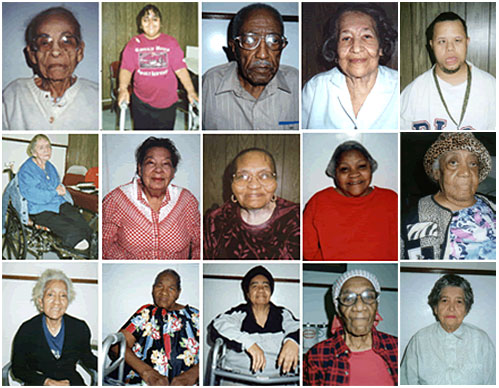Personal Statement
Sheldon M Hersh, MD
NACDEP President and Founder

NACDEP’s Goal:
“Turning healthcare disparity into healthcare equality while saving healthcare dollars”
NACDEP, the National Coalition for Dually Eligible People, grew out of my experience as a physician in New Orleans treating dually eligible people with Medicare and Medicaid — “the elderly and disabled poor” described by Senator John Breaux of Louisiana in a 1997 report by the US Senate Special Committee on Aging.
Sharing part of the life experience and deep humanity these people brought to my office every day was personally and professionally rewarding. NACDEP is my way of giving something back to this community.
The idea for NACDEP was born in 2000 out of frustration when I was forced to stop making house calls to low-income, elderly and disabled Medicare patients because Louisiana Medicaid decreased reimbursement by 81%.
Two years later Louisiana increased reimbursement for nursing home care for this same group. Decreasing medical funding for the inexpensive front end in the community, while increasing funding for the expensive back end in the nursing home, is medically, socially, morally, and financially unwise.
These 12 million dually eligible people are the fastest growing and most expensive Medicare population, consuming one-third of all Medicare and Medicaid expenses. They fill most nursing home beds; decreasing reimbursement for their community care increases our nation’s nursing home bill.
NACDEP offers a street-level, “doc-on-the-block” view of how a failed government healthcare policy harms dually eligible people and the neighborhoods in which they live.
As society becomes more diverse, our challenge is to reduce disparities in health care. The first step must be restoring equal healthcare access for low-income elderly and disabled Medicare beneficiaries. What’s good for dually eligible people is good for the nation.
Restoring Medicare-Medicaid crossover payments will increase access to physician care in the community, decrease nursing home costs, and decrease healthcare disparities for millions of vulnerable elderly and disabled citizens. Please support NACDEP and help make this wish a reality.
“Turning healthcare disparity into healthcare equality while saving healthcare dollars”
NACDEP, the National Coalition for Dually Eligible People, https://nacdep.org
“Of all the forms of inequality, injustice in health care is the most shocking and inhumane.”
— Martin Luther King, Jr.

Dually Eligible People with Medicare and Medicaid — At the Center of the Next Debate:
Because of their medical frailty, their social and racial demographics, their great expense, and their expanding growth rate, dually eligible people — “the elderly and disabled poor” — will occupy a central position in the upcoming debates over national healthcare financing and disparities in health care in the 21st century.
Sheldon M Hersh, MD
Louisiana Geriatrics Society Annual Meeting
New Orleans, Louisiana, 2003
Excerpts from the Paper
Following centuries of racially segregated medical care …
“Following centuries of racially segregated medical care, Medicare promised a single nationwide system of health care that guaranteed equal access for all beneficiaries. The Congressional Balanced Budget Act of 1997 broke that promise.”
Physician reimbursement averaged only 78% of their promised Medicare benefit.
“But physician reimbursement for more than 6 million poor dually eligible Medicare patients living in 42 states averaged only 78% of their promised Medicare benefit.”
The national poverty penalty for dually eligible people…
“In 2008, the Louisiana poverty penalty for dually eligible people was 15%; in 2018, the national poverty penalty for dually eligible people was 22%.”
